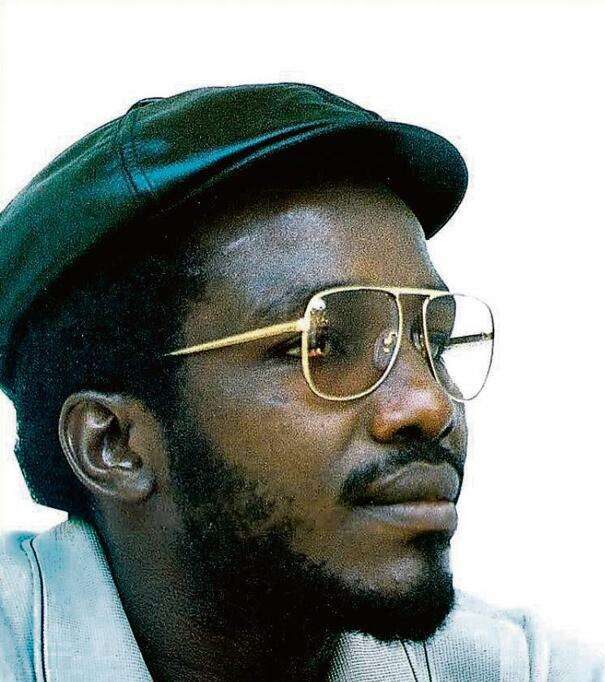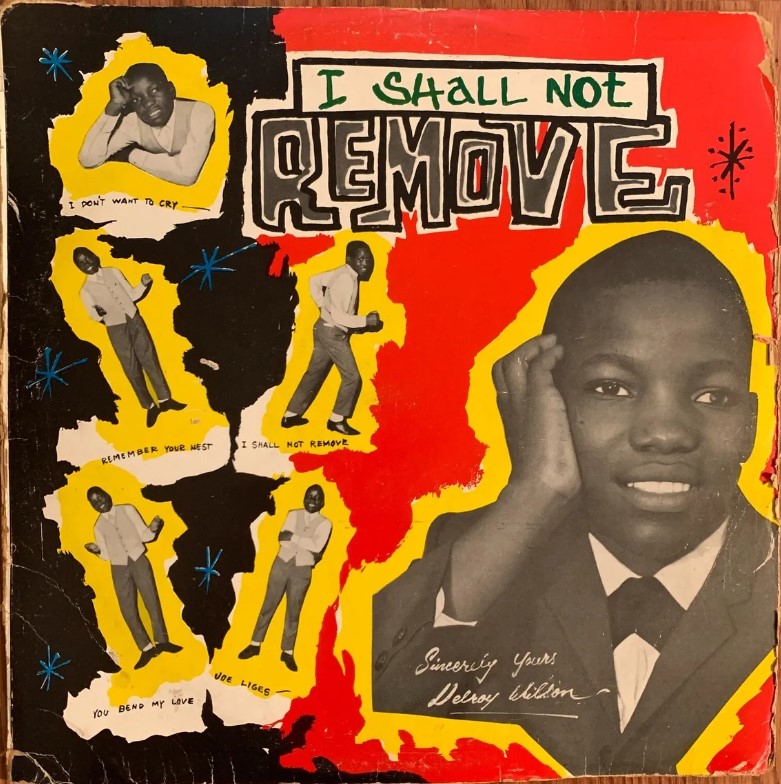Reggae Child Prodigy
Delroy Wilson

December 23, 20232
A soulful Delroy Wilson is indeed one of Jamaica’s most profound vocalists who left behind a significant legacy in the reggae and rocksteady genres. Born on October 5, 1948, in Trenchtown, Kingston, he rose to prominence in the early 1960s and went on to enjoy a fruitful career spanning over four decades. His association with producer Coxsone Dodd at Studio One in 1962 was a pivotal moment in his career. Wilson’s first recording for Dodd was a track entitled “If I had a beautiful baby,” but wasn’t successful. He followed up with “Spit in the Sky,” which was Dodd’s personally composed punch at rival Prince Buster. In addition, Lee “Scratch” Perry penned Wilson’s “Joe Liges” as a counteraction aimed at Buster’s “Bad Minded People”. The latter song established his venture as a rising talent. His transition from ska to rocksteady marked a period of prolific outputs, with hits like “Riding for a fall,” “I shall not remove” and “Once Upon a Time.” His cover of the Tams “Dancing Mood” in 1966 was a vital juncture in setting the stage for the rcoksteady era. A barrage of classic hits followed the next year. “Riding for a Fall,” “Once Upon a Time,” “Won’t You Come Home,” “Conquer Me,” “True Believer,” “I’m Not a King,” “Run Run” and “Rain from the Sky”, all from Studio One productions and straight onto the Jamaican charts; thus establishing Wilson as one of the label’s biggest hit makers. Now a household name, Wilson left Dodd and ventured on to other labels: W&C (Delroy Wilson/Stranger Cole) and the Links (Wilson, Ken Boothe, Gaylads , and Melodians). Both labels were short lived and Wilson eventually returned to Studio One and later collaborated with producers like Bunny Lee and Sonia Pottinger. In 1969, Dodd packaged most of Wilson’s masterpieces into the classic album “The Best of Delroy Wilson”. The 1970’s saw him touring the U.K. and recording for the Trojan label. In 1971, Wilson and Bunny Lee dropped the political anthem “Better Must Come”, becoming a significant success and capturing the spirit of the times and even serving as a campaign theme song for the victorious PNP party. The song would become the title of his next album. At this point he was labeled a socialist and lost support of the opposing party fanbase.
Throughout the ’70s and ’80s, Wilson continued to produce hits, collaborating with various producers, including Bunny Lee, Gussie Clarke, Winston “Niney” Holness, Joe Gibbs, Keith Hudson and others. Hudson and Wilson recreated “Run Run” and renaming it “I’m gonna get you”. Delroy kept busy with studio work and tours; he collaborated with various artists and producers to deliver quality singles and albums. Several notable hits were “Cool operator”, “I’m still waiting”, “All in this together” and “Come in heaven”. Jack Ruby, Tony Robinson and Bob Andy were instrumental in creating some of his major tracks in this period.
The rise of DJs in the early ’80s slowed his career temporarily, but he made a comeback with hits like “Don’t Put the Blame on Me” for King Jammys and “Ease Up” for Bunny Lee. Delroy Wilson’s discography includes a diverse range of songs, showcasing his emotional depth and vocal prowess. His contributions to ska, reggae and rocksteady have left an indelible mark on Jamaican music. Despite health issues, he continued recording until the early ’90s. In 1994 he received recognition from the Jamaican government with a special plaque for his lasting impact on the music scene. Tragically, Wilson passed away on March 6, 1995, due to cirrhosis of the liver. He was just forty six years old. In 2013 he was posthumously awarded the Order of Distinction (OD) by the Jamaican Government for his contribution to music.

His transition from ska to rocksteady marked a period of prolific outputs, with hits like "Riding for a fall," “I shall not remove” and "Once Upon a Time." His cover of the Tams “Dancing Mood” in 1966 was a vital juncture in setting the stage for the rcoksteady era.
Throughout the ’70s and ’80s, Wilson continued to produce hits, collaborating with various producers, including Bunny Lee, Gussie Clarke, Winston “Niney” Holness, Joe Gibbs, Keith Hudson and others. Hudson and Wilson recreated “Run Run” and renaming it “I’m gonna get you”. Delroy kept busy with studio work and tours; he collaborated with various artists and producers to deliver quality singles and albums. Several notable hits were “Cool operator”, “I’m still waiting”, “All in this together” and “Come in heaven”. Jack Ruby, Tony Robinson and Bob Andy were instrumental in creating some of his major tracks in this period.

The Singers Singer
His contributions to ska, reggae and rocksteady have left an indelible mark on Jamaican music. Despite health issues, he continued recording until the early ’90s. In 1994 he received recognition from the Jamaican government with a special plaque for his lasting impact on the music scene. Tragically, Wilson passed away on March 6, 1995, due to cirrhosis of the liver. He was just forty six years old. In 2013 he was posthumously awarded the Order of Distinction (OD) by the Jamaican Government for his contribution to music.

Delroy Wilson Album
HIGHLIGHTS & ACHIEVEMENTS
- 1962 – Recorded his first song with Coxonne Dodd.
- 1966 – “Dancing Mood” set the atmosphere for Rocksteady era.
- 1971 – “Better must come” was used by the PNP Party as a campaign song.
- 2001- Received a Plaque for Excellence in Jamaican Music.
- 2013 – Posthumously Honored with “Order of Distinction” (OD) by Jamaican Government.
- Considered one of the greatest child prodigies in Reggae.
- His son Karl “Konan” Wilson is a hip hop star in the U.K. Krept & Konan album “Young Kingz” created history in Britain as the highest charting album for an unsigned act.